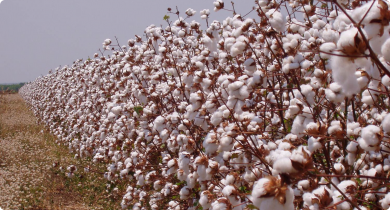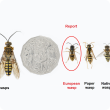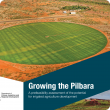Irrigated crops
In areas such as the Ord River Irrigation Area in northern Western Australia, the Department of Primary Industries and Regional Development is working with industry in trialling new varieties and agronomic systems for both existing and potentially valuable new crops.
The main crops of current interest include the health food quinoa, rice which is showing considerable potential if disease and variety problems can be overcome, sugar cane which will be the basis of new developments on Ord Stage 2, and cotton which is based on genetically-modified varieties.
Filter by search
Filter by topic
- (-) Remove Horticulture filter Horticulture
- Climate, land & water (10) Apply Climate, land & water filter
- Water management (6) Apply Water management filter
- Water (6) Apply Water filter
- Grains (6) Apply Grains filter
- Resource assessment (5) Apply Resource assessment filter
- Production & postharvest (5) Apply Production & postharvest filter
- Pastures (4) Apply Pastures filter
- Soils (4) Apply Soils filter
- Measuring and assessing soils (4) Apply Measuring and assessing soils filter
- New horticulture crops (3) Apply New horticulture crops filter
- Pests, weeds & diseases (3) Apply Pests, weeds & diseases filter
- Irrigation (3) Apply Irrigation filter
- Biosecurity & quarantine (3) Apply Biosecurity & quarantine filter
- Assessment for agricultural expansion (3) Apply Assessment for agricultural expansion filter
- Biosecurity (3) Apply Biosecurity filter
- Managing soils (2) Apply Managing soils filter
- Weeds (2) Apply Weeds filter
- Postharvest (2) Apply Postharvest filter
- Livestock & animals (2) Apply Livestock & animals filter
- Fruit (2) Apply Fruit filter
- Climate & weather (2) Apply Climate & weather filter
- Climate change (2) Apply Climate change filter
- Pasture management (1) Apply Pasture management filter
- Nursery & cutflowers (1) Apply Nursery & cutflowers filter
- Pests (1) Apply Pests filter
- Quarantine (1) Apply Quarantine filter
- Vegetables (1) Apply Vegetables filter
- Report card on conditions and trends (1) Apply Report card on conditions and trends filter
- Livestock species (1) Apply Livestock species filter
- Plant biosecurity (1) Apply Plant biosecurity filter
- Land use (1) Apply Land use filter
- Crop weeds (1) Apply Crop weeds filter
- Control methods (1) Apply Control methods filter
- Diseases (1) Apply Diseases filter
- Grapes & wine (1) Apply Grapes & wine filter
- Intrastate movement (1) Apply Intrastate movement filter
- Identifying WA soils (1) Apply Identifying WA soils filter
- Livestock management (1) Apply Livestock management filter









